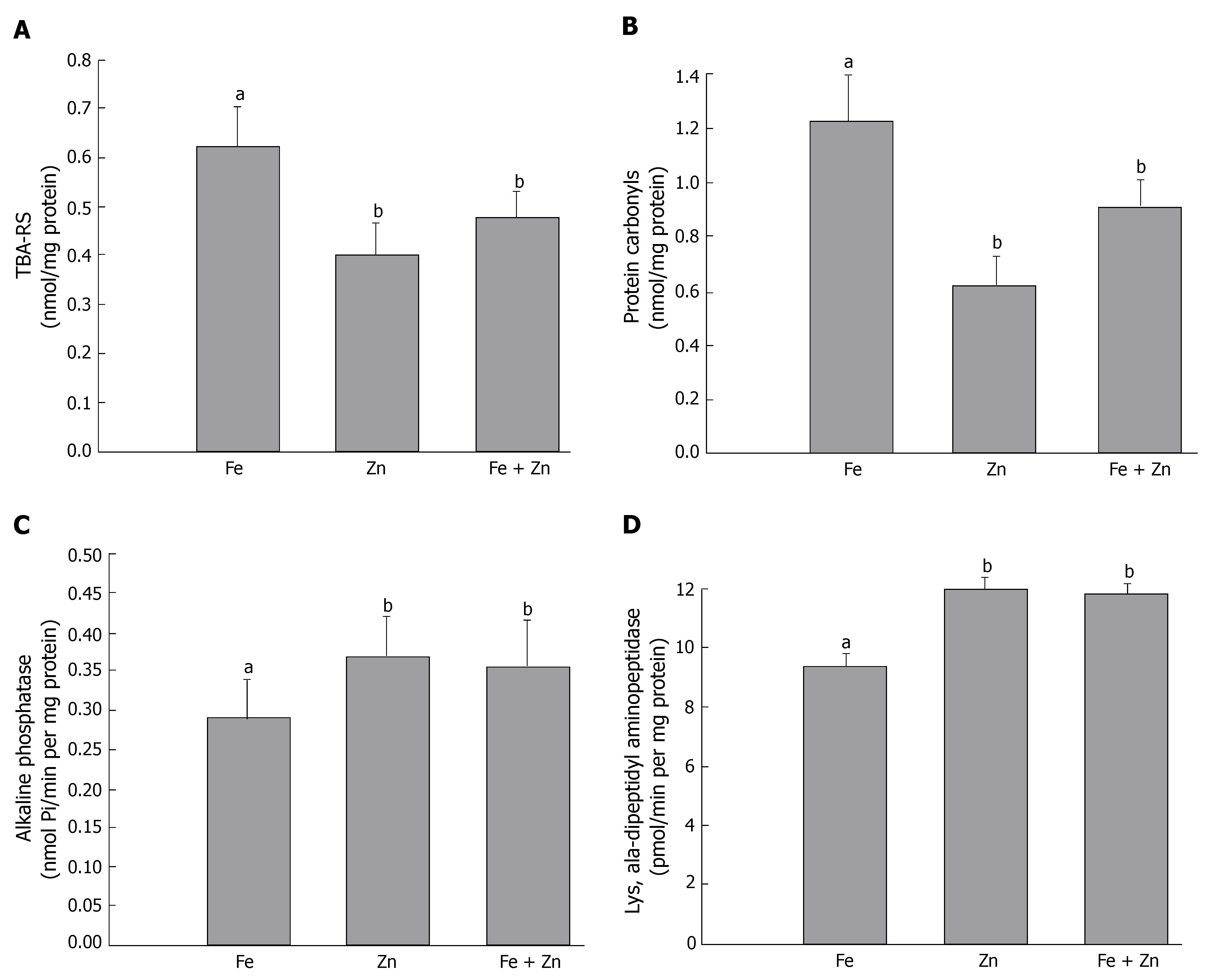Copyright
©2007 Baishideng Publishing Group Inc.
World J Gastroenterol. Nov 21, 2007; 13(43): 5707-5717
Published online Nov 21, 2007. doi: 10.3748/wjg.v13.i43.5707
Published online Nov 21, 2007. doi: 10.3748/wjg.v13.i43.5707
Figure 3 Iron increases intestinal oxidative stress and lowers functional integrity: Concentrations of thiobarbituric acid-reactive substances (TBA-RS) and protein carbonyls (A and B) as indicators of oxidative stress, and activities of alkaline phosphatase and lys-ala-dipeptidyl aminopeptidase (C and D), as markers of mucosal functional integrity, in the intestinal mucosa of iron and zinc deficient rats treated with iron and/or zinc.
Fe: Iron administered group; Zn: Zinc administered group; Fe + Zn: Iron and zinc administered group; Number of animals: 7 in each group. Vertical columns and error bars represent mean and SD respectively; Bars with different superscripts are significantly different with P < 0.05 among groups.
- Citation: Bodiga S, Krishnapillai MN. Concurrent repletion of iron and zinc reduces intestinal oxidative damage in iron- and zinc-deficient rats. World J Gastroenterol 2007; 13(43): 5707-5717
- URL: https://www.wjgnet.com/1007-9327/full/v13/i43/5707.htm
- DOI: https://dx.doi.org/10.3748/wjg.v13.i43.5707









